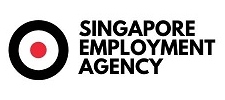As a business owner in Singapore, you may be eager to get your new foreign worker up to speed on their job scope before they officially commence employment. However, it’s crucial to understand the legal implications of doing so. The Employment of Foreign Manpower Act (EFMA) governs the employment of foreign workers in Singapore, and it has specific provisions that address this scenario.
Understanding the Legal Framework
The EFMA is meant to regulate the employment of foreign workers and ensure their well-being. Two key sections of the Act are particularly relevant when it comes to training foreign workers before they have obtained a valid work pass: Section 5 and Section 6A.
Section 5: Prohibition of Employment Without a Valid Work Pass
Section 5 of the EFMA clearly states that no person shall employ a foreign employee unless the foreign employee has a valid work pass. This means that any form of employment, including training, is not permitted without a valid work pass. The Act defines “employ” to include engaging or using the service of any person for the purpose of providing any training, whether under a contract of service or otherwise, and with or without salary. The penalty ranges from S$5,000 to S$30,000 fines for repeat offenders, on top of jail term of between 1-24 months.
Section 6A: Presumption of Employment
Section 6A further reinforces this by stating that no occupier of a workplace who has control of access to the workplace shall permit any foreigner without a valid work pass to enter or remain at the workplace. This section creates a presumption of employment if a foreigner is found at any premises, and the occupier of the premises is presumed to have employed the foreigner until the contrary is proved. The penalty is a fine of up to S$15,000 and/or 12 months jail, a fine up to S$30,000 and/or 24 months for repeat offenders.
Implications for Business Owners
For business owners in Singapore, this means that you cannot start training your foreign worker before obtaining a valid work pass for them. This is a direct violation of the EFMA and could result in penalties. It’s essential to ensure that all necessary work passes are obtained before any form of employment, including training, begins.
Best Practices for Compliance
To stay compliant with the EFMA, here are some best practices for business owners:
- Apply for Work Passes Early: Start the application process for work passes as early as possible to avoid delays in getting your foreign workers onboard, EP, S Pass or Work Permit.
- Verify Work Pass Status: Always verify the work pass status of your foreign workers before allowing them to start any form of employment or training.
- Educate Your Team: Ensure that your HR team and managers are aware of the legal requirements and the importance of compliance with the EFMA.
Conclusion
While it may be tempting to start training your foreign worker before their work pass is approved, it’s important to adhere to the legal requirements set out in the Employment of Foreign Manpower Act. By doing so, you can avoid potential penalties and ensure a smooth onboarding process for your foreign workers.

